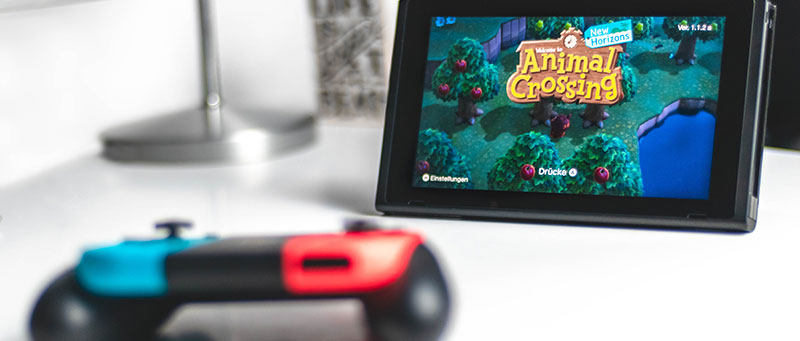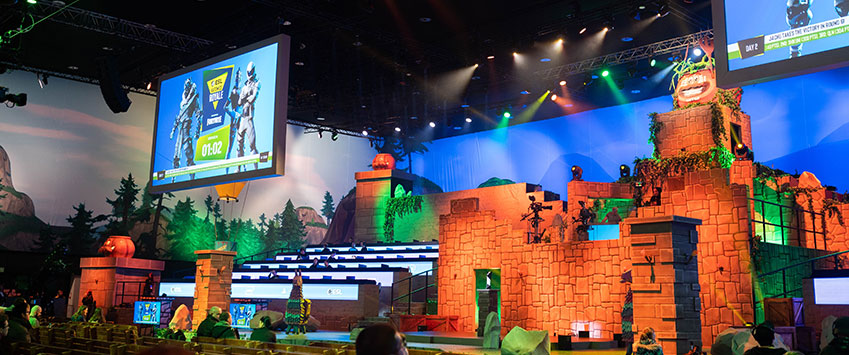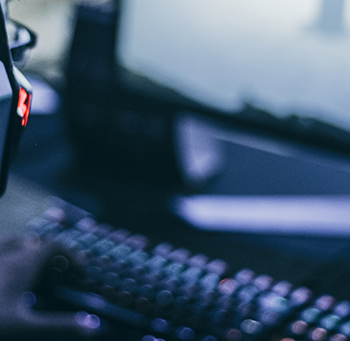
How has COVID-19 reshaped the gaming industry?
The coronavirus outbreak has brought global economies to a standstill, shut businesses overnight and cost millions of jobs – not to mention the hundreds of thousands of lives that have been lost.
The economic impact of shutdowns has been devastating and few industries will come out of this unscathed. There are some exceptions, though. Supermarkets have seen record sales figures, software companies like Zoom have become household names and Nintendo cannot seem to make enough Switch devices to satisfy demand during the lockdown.
Yes, the gaming industry has emerged as one of the few positive stories from the coronavirus outbreak, but how long can the boom last and what does this mean for the future of the industry?
Lockdowns resulted in a gaming boom
With millions of people forced to stay at home during lockdowns in the UK alone, Netflix subscriptions quickly rose, but there was another digital pastime that stole the headlines. After toilet paper, of course, Nintendo’s handheld Switch console became the most in-demand item during lockdown – so much so that it became harder to get your hands on the device than a 12-roll pack of luxury three-ply.
Animal Crossing established itself as the game synonymous with endless hours at home and perhaps it is no coincidence that you spend most of the game wandering outside and engaging with nature.
At the same time, the UK has seen a 43% reduction in the sale of physical games during the lockdown as people turn to buying digital products online.
However, the biggest gaming boom appears to be in the eSports arena, which was already seeing impressive growth in the years prior to COVID-19. The global pandemic has merely accelerated the growth of a market forecast to be worth $159 billion in 2020 – before the pandemic hit.
It’s not all good news, though
Despite the COVID-19 success stories for many leaders in the gaming industry, there are plenty of problems caused by the virus, too. Even after selling roughly 60 million Switch units during the outbreak, Nintendo is cautious in its forecast for the future. The company warns that it expects to see sales decline in the summer. It also says supply and development issues caused by the outbreak could cause hardware and software production challenges.
Many industry leaders are cautious about the long-term impact the coronavirus outbreak could have on product releases and sales.
Another potential challenge for the current industry leaders could be the emergence of game streaming through products such as Google Stadia. Microsoft, Amazon and other tech giants are keen to muscle in on console-less gaming and while performance cannot match dedicated consoles, the gap will only close.
Crucially, games streaming is less vulnerable to hardware production issues.

Even eSports have felt the negative effects due to events being cancelled or postponed, highlighting the importance of these international get-togethers for the industry. Our gaming translation team is also keeping a keen eye on development schedules to see if there is any lasting impact on the availability of products.
On the one hand, higher demand for games means there should be a greater need for translation services, but this depends on development projects progressing as expected.
There are unwelcome knock-on effects from the few COVID-19 success stories, too. A decline in physical game purchases and lockdown closures put brands like GAME in an even more perilous position as countries emerge from lockdowns.
As with every industry, gaming faces unprecedented times due to the coronavirus outbreak and once the short-term impact has faded, it looks like key trends will be accelerated – for example, the growth of eSports and digital vs physical purchases. This means brands may have less time to adapt and the need to pre-empt industry shifts is greater than ever.
At the same time, if lockdowns have turned more people into gamers, brands need to do everything they can to keep these first-time buyers engaged and ensure as many of them as possible become long-term gamers who continue to buy and drive industry growth.
- Posted by Alexandra Kravariti
- On 12th June 2020
- 0 Comments




0 Comments